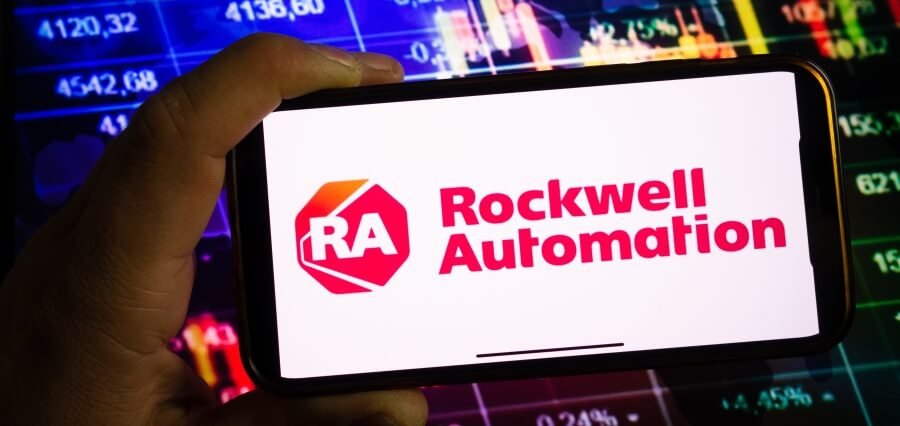Amidst the perpetual flux of time, the contemporary era remains in constant evolution, perpetually transitioning through fleeting moments. Embracing this continuum, LEAP India Private Limited emerges as a powerful force of sustainable practices in global supply chain management.
Sunu Mathew, the Founder and Managing Director, elaborates on LEAP’s acronym, representing ‘Leading Enterprise in Asset Pooling.’ The company specializes in supply chain solutions, notably focusing on the unit load, specifically the timber pallet—a pivotal component facilitating the seamless transfer of unit loads across suppliers, manufacturers, 3PLs, retailers, and ultimately to end consumers.
Since its establishment in 2013, LEAP has been instrumental in propelling various sectors of the supply chain industry nationwide. A key facet of LEAP’s offerings lies in its capacity to deliver tailored, cost-efficient solutions aligned with the unique requirements of individual clients. Holding over 70% of the pallet pooling market share, LEAP stands as India’s foremost asset pooling entity, managing over six million total assets across more than 2500 locations and servicing in excess of 4000 consumer touchpoints throughout the country.
The Supreme Value Addition
Founded in 2013 with a steadfast commitment to delivering top-tier supply chain solutions, LEAP has emerged as a frontrunner in executing, planning, and managing tailored services for its esteemed clientele nationwide. The company has carved out a distinct niche within the supply chain industry, earning unwavering trust from all stakeholders involved.
A leading provider of wooden pallets, foldable large containers (FLCs), crates, and various returnable packaging solutions, LEAP has significantly slashed transportation costs while targeting reduced wastage, minimized inventories, and enhanced efficiencies within the Supply Chain Management framework. Positioned advantageously in a burgeoning market, LEAP aligns strategically with India’s imminent transformations in the supply chain sector. The government’s mandate to slash supply chain costs from 14% to 9% as a percentage of GDP amplifies the significance of LEAP’s services. Emphasizing the importance of optimizing supply chain processes by reducing product handling frequency, LEAP leverages its asset pooling expertise, specifically focusing on unit load movement. This approach aids clients in cost reduction, operational efficiency enhancement, and ultimately delivering heightened value to their own customers.
Sunu underscores their distinctive service—a pooling model that offers asset rental services to diverse clientele. This arrangement allows customers to utilize assets as needed, paying solely for their usage, thereby curbing capital expenditure and redirecting focus toward operational costs. Furthermore, LEAP assumes responsibility for any asset impairments, ensuring seamless and hassle-free operations for its valued clientele. Sunu also believes that if India is striving towards China +1 strategy, the product reaching the customers must move on pallets.
Ensuring an Uninterrupted Stream
Within the realm of competition, any pooling model necessitates a uniform unit load adopted across the supplier, manufacturer, 3PL, and retailer stages of the supply chain. Diverse pallets among different entities result in the need for re-palletization, incurring substantial additional costs in the supply chain. The sole assurance for a seamless flow of goods and cost reduction for all stakeholders lies in providing a standardized pallet consistently used throughout the supply chain. This characteristic designates the asset pooling industry as one with formidable barriers to entry, presenting numerous underlying complexities that pose challenges for new entrants.
Additionally, LEAP’s commitment to sustainability harmonizes with India’s sustainability aspirations. The company sources all timber from sustainable forests, diligently ensuring the planting of three trees for each one harvested. This sustainable timber sourcing aligns with India’s stringent regulations on tree felling, positioning LEAP as a stalwart advocate for enduring sustainable practices.
What distinguishes LEAP from competitors is their dedicated focus on harnessing technology to deliver efficient, cost-effective solutions for their clients. Their proprietary in-house warehouse management systems are meticulously crafted to monitor inventory and streamline orders in real time, offering comprehensive visibility and command. Their unwavering emphasis on innovation and technology empowers them to stay at the forefront of the swiftly evolving supply chain management landscape, offering avant-garde solutions to their discerning clientele.
Revolutionizing the SCM Landscape through Technology Innovation
At LEAP, the significance of technology within the contemporary supply chain environment is deeply acknowledged. Their warehouse management systems are meticulously tailored to meet the precise requisites of their clientele, offering complete oversight and command over their supply chain undertakings. “We dedicate substantial resources to research and development, enabling us to remain at the forefront and furnish innovative solutions that drive substantial value for our clients,” mentions the individual, previously accountable for overseeing the comprehensive supply chain operations of a cosmetics giant, L’Oréal. His purview encompassed supervising both manufacturing and consumer product supply chains, entailing product sourcing from 18 disparate countries, internal forecasting, warehouse management, transportation, and final distribution to retailers across the nation. This multifaceted experience offered valuable insights into the entire operational continuum, spanning from manufacturing to sourcing and final customer delivery.
During this period, India commenced exploring B2B supplies for contemporary retail and witnessed the nascent emergence of online sales. To uphold product quality, the team rigorously maintained the product temperature below 18 degrees Celsius throughout the year. Consequently, the company streamlined its supply chain, reduced distributors, and significantly augmented operational efficiency.
The triumph of LEAP can be attributed to the robust leadership furnished by Sunu and his seasoned team of professionals. With an extensive 25-year stint in strategic management, marketing, sales, and supply chain solutions, Sunu’s educational background, including an MBA from FMS/IIRM, SMP from IIM Calcutta, and MDP from INSEAD France, has fostered a comprehensive understanding of the logistics and supply chain domain.
The Leadership Prowess of a Role Model
Sunu’s stewardship and expertise have been indispensable to LEAP’s trajectory of growth and triumph. He has spearheaded LEAP’s emphasis on innovation and technology. Under his astute guidance, the company has cultivated cutting-edge technological solutions, significantly streamlining its operations and enhancing service provisions. This unwavering focus on innovation has empowered LEAP to consistently outpace competitors and furnish avant-garde solutions to its clientele.
Integrity stands as a hallmark quality that garners widespread respect for him as a business leader. His unwavering commitment to honesty, ethics, and transparency resonates with trustworthiness and reliability, instilling confidence in his leadership.
Visionary acumen is another pivotal trait attributed to him. He continually peers beyond the present scenario, envisioning an improved future for their organization.
Resilience and adaptability stand as other admired attributes. In today’s rapidly evolving business realm, leaders must navigate challenges and setbacks with fortitude and flexibility. Sunu displays a readiness to recalibrate strategies and methodologies, ensuring a competitive edge and aligning with the ever-changing customer needs.
In his perspective, modern technology, such as AI and ML, permeates all facets of business and daily life. These technologies prove especially valuable for forecasting and trend analysis, offering remarkably accurate predictions about future scenarios. However, the efficacy of AI and ML in situational analysis necessitates human input; devoid of proper inputs, effective planning for the future becomes unattainable for these technologies.
Advancing in the Realm of Technology
AI and ML are revolutionizing warehouse management practices. These technologies find application in forklifts or racking operations, significantly reducing reliance on manual labor. A conventional warehouse devoid of Automated Storage and Retrieval Systems (ASRS) necessitates approximately 100 personnel for operations, while an ASRS system augmented by AI and ML requires only about five individuals to manage the same workload.
Furthermore, ML algorithms play a pivotal role in optimizing logistics routes and schedules. They analyze extensive datasets encompassing traffic patterns, weather conditions, and delivery timings, ensuring prompt and cost-effective deliveries.
At LEAP, the significance of embracing these progressive technologies is well understood to maintain a competitive edge and furnish innovative solutions to their clients. The company has dedicated substantial investments and effort towards AI and ML research and development, rigorously testing these technologies for integration into their Supply Chain Management (SCM) solutions.
For instance, they have devised an AI-driven inventory management system adept at analyzing sales data, supplier lead times, and inventory expenses. This system optimizes inventory levels, mitigating the risks associated with stockouts or overstocking. Additionally, LEAP has integrated ML algorithms into their logistics optimization solutions, enhancing routing and scheduling efficiency while reducing transportation expenses.
Overcoming Hurdles
Among the foremost challenges encountered lies in a lack of awareness. Many individuals remain oblivious to the advantages that contemporary supply chain management methodologies could bring to their enterprises. Sunu underscores that integrating cutting-edge technology into supply chain management, anchored by the unit load, could substantially transform customers’ operations and profitability.
However, Sunu has observed a certain hesitancy among major corporations when it comes to embracing new technologies, often weighing short-term expenses against long-term gains. “This reluctance impedes our advancements,” he states. Should these larger entities take the initiative and invest in technology for their supply chain management, they could notably enhance operational efficiency, driving increased profits and thereby fostering heightened customer satisfaction.
In tackling these challenges, he emphasizes LEAP’s evolution into a repository of knowledge. “It’s imperative to remain abreast of the latest supply chain management advancements and technologies, exhibiting the benefits of adopting modern practices to our clients. By positioning ourselves as industry experts, we can catalyze industry change and elevate operational efficiency.”
Sunu regards challenges as opportunities for growth and innovation. LEAP is consistently exploring avenues to enhance its operations, whether through technology-driven solutions, process refinement, or employee training initiatives. Moreover, they prioritize maintaining strong client relationships, collaborating closely to identify solutions that cater to the clients’ ever-evolving requirements.
Insights for Aspiring Entrepreneurs
For those venturing into entrepreneurship, Sunu provides guidance on perceiving supply chain management as a potentially prosperous industry for the next few decades. Education, pharma, and supply chain are anticipated to be pivotal sectors and robust economic contributors, particularly within India’s economic landscape.
He strongly emphasizes that managing supply chains isn’t confined to Excel sheets alone. Success in this industry demands a commitment of 15-16 hours daily to comprehend current operations thoroughly and find ways to integrate new technologies or simplify processes for customers. Meticulous execution is crucial due to India’s vast geographic diversity, each region exhibiting distinct behaviors.
Remaining abreast of the industry’s latest technologies and trends is pivotal, enabling the identification of fresh prospects and staying ahead of competitors. Cultivating robust relationships with suppliers, customers, and industry stakeholders is equally imperative. These relationships underpin a solid reputation, foster new business opportunities, and bolster brand growth.
Lastly, maintaining a broad perspective and a readiness for new ideas and prospects are paramount. The supply chain domain is in perpetual evolution, and successful entrepreneurs will be those who adeptly adapt to changes, remaining at the forefront of the industry’s progress.
An Evolved Vision Ahead
When contemplating the future expansion of the LEAP brand’s operations and services, he reveals their strategic focus on broadening geographic presence, diversifying service portfolios, and embracing cutting-edge technologies. To realize these aspirations, they aim to progressively extend their network of warehouses and distribution centers throughout India, concurrently exploring potential avenues for market penetration in Southeast Asia and the Middle East.
Their plans extend beyond conventional warehousing and distribution services; they intend to offer an array of value-added services encompassing kitting, labelling, packaging, transportation management, and e-commerce fulfilment.
“Moreover, our commitment persists in harnessing new-age technologies like AI, ML, and blockchain to optimize operational efficiency. This will offer heightened transparency and visibility to our esteemed clientele,” Sunu concludes, outlining their strategic trajectory.





